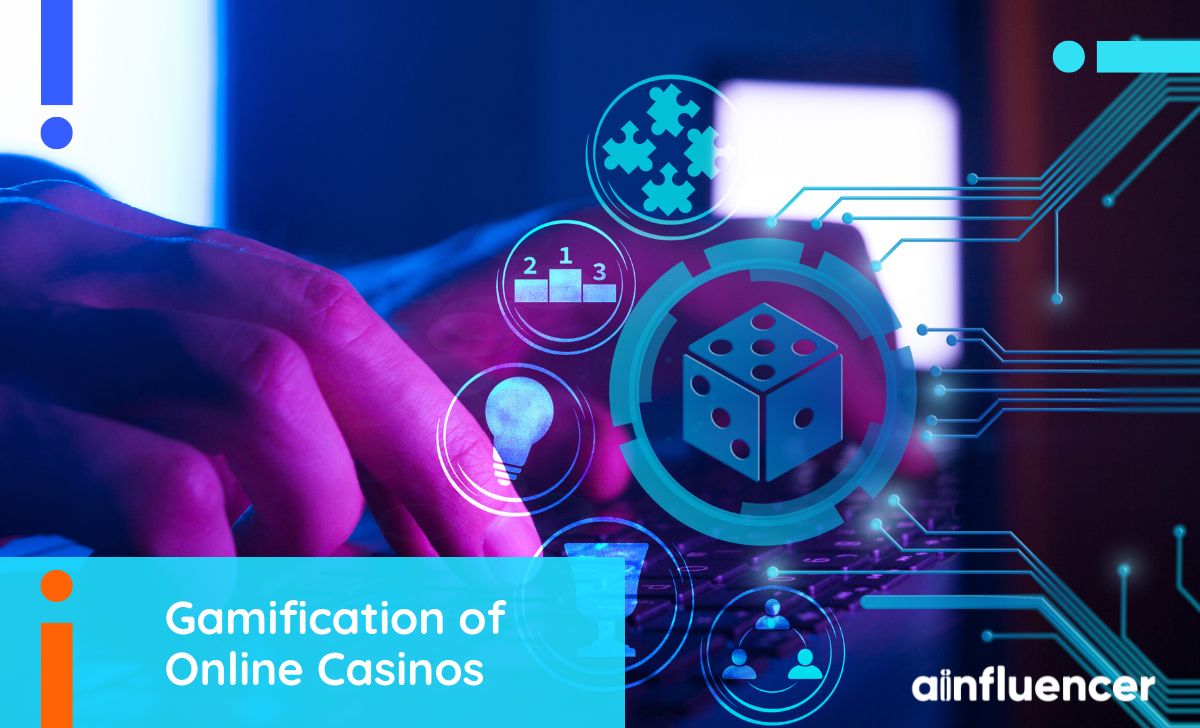Do you recall a time when heading to the casino simply meant approaching the slot machines and mindlessly pulling the handle while hoping for a little luck? With the rise of gamification, those times are fading faster than coins in a one-armed bandit.
Today’s online casinos are taking cues from video games and even the content strategies of gaming YouTubers to create experiences that feel less like gambling sessions and more like epic quests. Even traditional games have been transformed.
Now, when you play keno online for real money, you’ll find themed variations with progressive elements, bonus features and achievement systems that turn simple number selection into engaging adventures.
With gamification accounting for a 47% increase in engagement and the entire gamification market projected to reach $30.7 billion by 2025, the way people interact with digital entertainment is changing.
We will look at just how achievement systems, personalized missions and social challenges are increasing player engagement, why this is both beneficial to players and operators, and what this means for the future of online entertainment.
From a Slot Spin to an Epic Quest
The simple premise of gambling has transformed from traditional mechanics into something that resembles a more structured adventure experience. This would be easy to understand, even for a video game player.
Instead of a simple bet-win cycle, players now have options for a more nested progression system that allows them to earn experience points, unlock achievement badges and gain access to exclusive content based upon their progression throughout the gaming journey.
And it is more than just a cosmetic change. As a result of the use of gamification, casinos are reporting increases of up to 25% in player loyalty, with 68% of players choosing a gamified casino experience over a more traditional experience.
The numbers tell a clear and convincing story: There is interest in gamification, people want more than just passive betting.
As an example of how it might look in practice, traditional bet-win cycles would only produce the next spin. However, a gamified version will typically offer a daily challenge, seasonal tournaments or collaborative missions.
By completing selected achievements, players could unlock new game themes or earn bonus features from continued play behavior. These experiences sustain engagement as opposed to the boom-bust cycles of traditional gambling.
This transformation addresses a fundamental constraint of traditional casino games: they do not have the inherent psychological gratification of making progress or experiencing an accomplishment.
The Science of Player Satisfaction
Gamification works because it appeals to psychological needs which simple win-lose gambling does not. Especially among younger consumers, players want game outcomes under their control, and they want to participate in skill-based elements rather than just being passive onlookers.
Modern gaming platforms also employ AI-driven local personalization for their players’ gaming journey. A player who has a predisposition towards slot machines is offered challenges that align with that theme, and a table games player unlocks bonus games from playing blackjack.
All of these efforts enhance the generic interactions into unique gaming entertainment experiences.
Social elements in gaming also play a crucial role. What was formerly a solitary activity now creates:
- Community-based leader boards encouraging a friendly competition
- Team Challenges where groups are working towards a common goal
- Achieving and sharing an accomplishment for social recognition
- Multiplayer tournaments that incorporate skill-based outcome with the chance
These community-based approaches address the fact that players were going to brick-and-mortar casinos for the social interaction with other players. Now, online social gaming provides the same social elements while also recreating the ease of digital consumer behavior.
The psychological reward is not only wrapped in individual satisfaction. Upon viewing progress bars, completion badges, and unlockable gameplay, players are interfacing with reinforced systems designed to keep players engaged by providing them with regular, positive reinforcement.
As a result, healthier gaming relationships can be developed based on achievement rather than financial-based outcomes; in other words, we can begin to shape better gaming experiences.
Building Better Player Experiences
The gamification of gaming relationships replaces the focus of monetary wins and losses with deliberate action-based gaming relationships connected to structure and community.
Given that 80% of players prefer slots, these game types are ideal vehicles for gamification systems aimed at responsible gaming, using skill-based systems that promote structured play.
Achievement-based rewards shift the focus from immediate financial wins and losses to objectives and challenges, so rather than focusing players’ attention on making or losing money, a player may focus on achieving their daily challenge, earning a rare badge, or making it to the next level in a leaderboard-based tournament.
It is this psychological shift that may help prevent players from experiencing emotional swings associated with gambling, while maintaining the important feeling of, “I want to continue playing.”
The community features of adventure gaming may provide players with a natural accountability structure in online communities in which players participate together in challenges or compete as teams against other teams.
In these social contexts, friendships are built outside of the gaming sessions, including groups of players making decisions together, supporting each other, and developing team strategies around gameplay, and collectively developing responsible gaming communities.
The structure of the gaming experiences provides players with natural boundaries. When completing a mission, it provides a logical decision point to stop playing and while accruing a badge system, or furthering their status in the league, it can give players an opportunity to make an endpoint that is not dependent on winning streaks or lucky spins.
The Road Ahead for Online Entertainment
This isn’t just a shift in gambling, but for the entire entertainment industry. The online gambling market in the US is expected to grow from $2.2 billion in 2022 to $7 billion by 2026, after accounting for growth in each state for the introduction of these gaming systems.
There are now seven states in the US with legislation for full online casino gaming, creating regulated environments to develop gamification formats and innovations, without worrying about the disruptive model or uncertainty about how regulations will ultimately work. Each state creates a stable environment for further development in adventure gaming spaces.
The broader goal of cross-industry gamification represents a growth from $30.7 billion by 2025, which means that casino operators are not alone in taking part in the interactive and achievement-based digital entertainment shift.
Continued integration with mobile marketplaces and artificial intelligence user preferences will continue to enable the development of interactive and personalized gaming adventures and make them ever more accessible to all.
The potential for regulatory acceptance and overall expansion of the market may actually suggest a permanent shift away from a simplistic operational model, toward aspirational entertainment gaming experiences.
Final Words
Gamification isn’t just changing and improving how we play, but creating entirely new genres of digital entertainment opportunities that elevate and arrange skill, strategy, and social interconnectedness.
For players, this means engaging, community-oriented experiences that provide gameplay satisfaction and enjoyment that is not about winning or losing money. And for the industry as a whole, this represents a method for responsible, sustainable growth, driven by increased player satisfaction and retention.
Mindless slot pull experience is now being replaced with thoughtful, curated adventure gaming experiences that involve the player and respect their intelligence and conscious choices, and provide the excitement they are looking for.
FAQs
Here are some frequently asked questions regarding this subject that you might find helpful:
1. What Is Gamification in Online Casinos?
Gamification in online casinos refers to the use of game-design elements such as levels, achievements, challenges, storylines, and rewards to make gambling more interactive and engaging. It turns traditional betting into a more immersive adventure experience.
2. How Does Gamification Make Online Gambling More Enjoyable?
Gamification adds progression systems, missions, and achievements that give players a sense of accomplishment. Instead of relying solely on chance, players can work toward goals, unlock badges, and earn bonuses, making playtime feel more purposeful and rewarding.
3. Is Gamification Just a Marketing Gimmick?
Not at all. While it does increase engagement, gamification also enhances player satisfaction and promotes healthier gaming habits by focusing on achievements and milestones rather than constant betting or financial wins.









